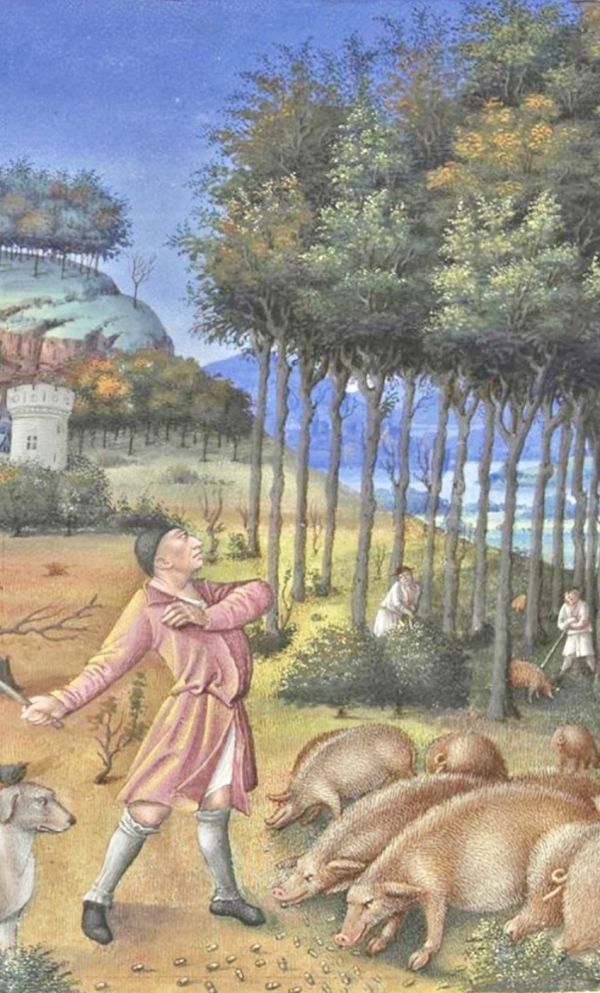(Mt 8:28-34)
In all religions, man is invited to bind himself to divine consent to receive light and strength, submitting to his authority.
The dilemma of the Judaizing assemblies of Galilee and Syria - reflected here - is whether to close or open the circuit of the sacred.
And whether to customize, or step back and repeat.
The passage associates the icons of the sea (vv.27.32) and of the wandering possessed ones, separated from God and people; deprived of a regenerating inner strength.
The optics is that of our baptismal purification in Christ, which drowns impurities and germs of death.
In this way: those who have not yet met Jesus proceed haphazardly, they are «furious» (v.28); without criterion or goal.
The only constant these souls have in common is to put fear into others: they live in a belligerent, disorderly, pre-human situation, impeded in themselves and of a hindrance to all (v.28).
But the fact appeared within the norm (v.29).
In Semitic literature, the image of «sea» alludes to disordered forces, aimlessly and not in accordance with God's project on woman and man.
Powers that generate chaos in our existence.
It is the bitter panorama of a world that loses the foundation of its being and becoming.
Ambit assiduously forced to groping... to solve problems and not permanently lose the vitality-wave.
«Pig» [symbol of paganism] is a figure of that kind of irremediable contamination that prevented the human being from having a relationship with God - and feeling his welcome.
The critical moment is the Presence of the Lord: suddenly the evil crumbles completely, revealing its emptiness - unexpectedly devoid of all solidity.
A disproportion takes over: between what seemed fearful and invincible, and the nothingness that appearances were masking (v.31).
Imperial ideology was threatening and destructive. It leveraged on people's fears in order to subdue consciences.
This was the situation of persons - crumbled inside - before Jesus arrival.
Power then ideologically manipulated popular beliefs about demons - to shatter singular personalities and accentuate the surrender of the already oppressed masses.
Conversely, in the experience of life’s victory over death, early Christian communities gained breath of Faith and a return to oneself - as a soul therapy.
They experienced a kind of disproportion and self-control, despite defeats in preaching.
The ancient assembly that once had the horror of contaminations began to open the doors of the purist ghetto, making everyone participate.
The church broke away from common beliefs, which transmitted perverse competitions, and to the weak a feeling of mortifying awe - lack of autonomy and conscience.
Of course, the early heralds were quick to realize that the new sense of freedom produced a twofold feeling: oppressed men do not always want to be freed from their alienations and torments.
Jesus fascinates and consternates. He precipitates inconsistent bonds, and common idols.
His Message is decisive and beneficial, but it forces us to upset habits, purposes, and every closure.
[Wednesday 13th wk. in O.T. July 2, 2025]












